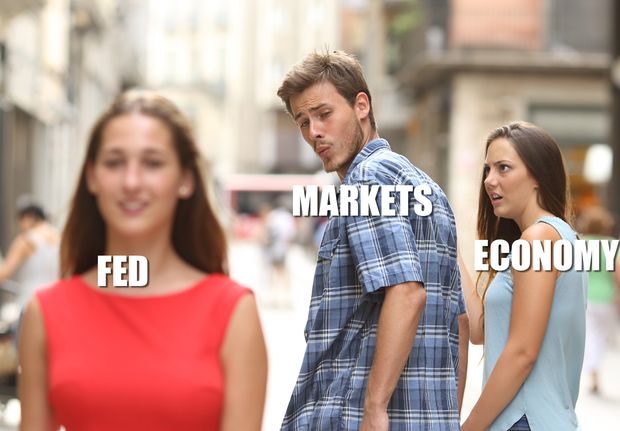
It’s hard out there for a bear.
Millions of jobs have been lost, some likely permanently. Small businesses are failing. Government debt is ballooning. And yet the U.S. stock market just keeps going up.
Economist David Rosenberg, who’s often more bearish than the general consensus, including now, has an explanation.
“I realize that the stock market no longer thinks it needs the economy if it has the Fed,” Rosenberg wrote in his morning commentary Wednesday.
That is, as long as the Federal Reserve keeps pumping monetary stimulus into the financial system, the financial markets can continue to ignore the awful state of the economy.
And in case you’re not clear on that topic, Rosenberg is happy to remind you. “Consumer activity is starting to cool off,” he notes, the holiday shopping season is likely to be “weak,” consumers are likely turn decidedly frugal, 68% of unemployment insurance recipients make more on the dole than while they were working, the U.S. now has the biggest debt-to-GDP ratio since World War II, with a much older population, lower-for-longer yields won’t support pensioners, and on and on.
Perhaps more damning, in Rosenberg’s telling, isn’t that the market is disregarding the real economy, or that both are dependent on central bank stimulus. Both are understandable. What’s really disconcerting is that the market is behaving like the ultimate creepy ex-boyfriend: it won’t let the central bank leave.
The first sign of this disturbing behavior came as the Fed tried to unwind years of stimulus thrown at the legacy of the 2008 financial crisis, Rosenberg notes: “in late 2018 when (Fed Chairman) Jay Powell had the absolute temerity to take the Federal funds rate to that ‘oh-so-lofty’ level of 2.5%, the lowest peak since… you ready for this? … the 1930s (!) Powell got within 50 basis points of what the Fed back then believed was the ‘neutral rate’ and couldn’t go any further without the capital markets suffering a complete coronary. A massive hissy fit at that time, if you recall, as the high yield bond market dried up and the S&P 500 SPX, +0.57% plunged almost 20%. Before the famous Powell pivot and then late-2019 re-expansion of the balance sheet.”
Read next: Wall Street’s road warriors have spent the past three months grounded. How’s that working out?










Add Comment